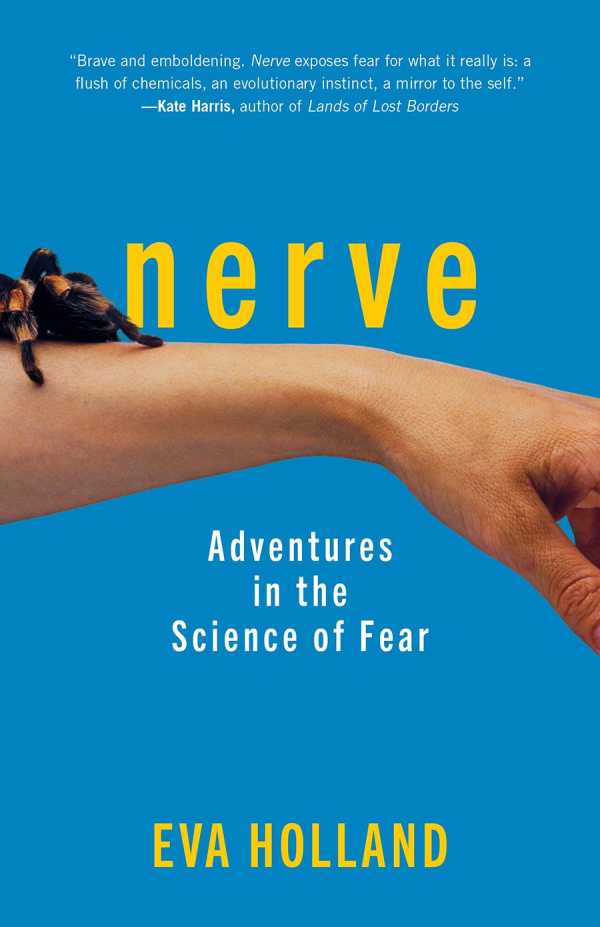Nerve
Adventures in the Science of Fear
To what can we attribute a phobia? Is it a bad memory metastasized, or is extreme fear unrelated, or not always related, to memory? Furthermore, what exactly happens when we feel fear? Does the feeling of fear prompt the body to tighten muscles, shiver, sweat, et cetera, or is it the other way around: does our mind conjure up the feeling of fear in response to our body’s physical reaction?
Such are the questions threaded through Eva Holland’s Nerve: Adventures in the Science of Fear, her courageous chronicle of many fraught years spent facing down two debilitating phobias—of losing her mother and of heights. Fear, Holland learned, is not what she thought. By taking part in innovative pharmacological and exposure therapies, interviewing some of fear science’s leading scientists, and simply jumping out of a damn plane, she found that fear lost much of its fearsomeness.
In Amsterdam, Holland sought help from Merel Kindt, a therapist using the beta-blocking drug propranolol to eliminate the emotional effects of a fearful memory. “The procedure is not about erasing memories,” Holland writes. “Instead, it’s as though it unmoors them so they can no longer trigger our fear responses in the present.” After being elevated over sixty feet in the rickety bucket of a firemen’s lift, a traumatized Holland took a single pill of propranolol and “Sooner than I expected, I felt completely calm. My body felt normal again.”
Poignant and humorous, Holland’s demon-chasing journey is an inspiration.
Reviewed by
Matt Sutherland
Disclosure: This article is not an endorsement, but a review. The publisher of this book provided free copies of the book to have their book reviewed by a professional reviewer. No fee was paid by the publisher for this review. Foreword Reviews only recommends books that we love. Foreword Magazine, Inc. is disclosing this in accordance with the Federal Trade Commission’s 16 CFR, Part 255.

